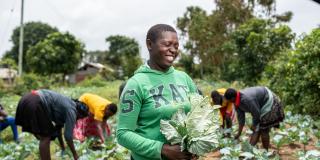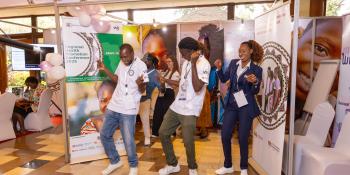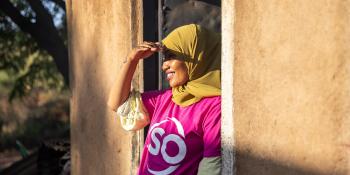
Our lives are being impacted like you could not imagine. Flooding, exacerbated by climate change, is a growing crisis that we have all experienced in recent weeks and months.
As youth ambassadors and advocates from some of the most flood-prone regions, we bear witness to the devastating effects flooding has on vulnerable communities, and we now call on you to take decisive action.
As conversations take place at COP29 in Azerbaijan over the next two weeks, we must also look further afield to understand the rapid impact flooding is having on our communities across the world.
From Nigeria to Nepal, Ethiopia to Bangladesh, the challenges are clear: inadequate infrastructure, poor urban planning, and a lack of resources to manage and mitigate floods.
As Given Promise from Nigeria highlights, communities need immediate resources to document and address the true scale of the problem. Yet, despite the urgency, proper funding and preparation remain elusive.
Preventative measures are key to alleviating the suffering caused by flooding. Arman from Bangladesh stresses the need for flood control infrastructure, while strengthening natural flood management approaches and sustainable land-use practices.
In Pakistan, Awais speaks of the health crises that follow floods, such as dengue and malaria, which require better access to medical facilities in remote areas and immediate investment in health facilities to support adaptation of services to reduce disruption and address new health needs.
Meanwhile, Zelalem from Ethiopia notes that improving early warning systems, drainage, and urban planning, and engaging youth and vulnerable groups in adaptation planning, could help communities better prepare for and manage floods.
Governments must play a crucial role in tackling these challenges.
Lamia from Bangladesh reminds us that children are among the most harshly impacted by floods, as schools and homes are inundated by flood. Schools and learning centres need urgent support to ensure they are safe spaces and children's wellbeing and education needs to be prioritised during disruptions.
Aarati from Nepal proposes that infrastructure investments, such as embankments and early warning systems, could save lives and protect economies dependent on agriculture.
We urge you to prioritise investment in resilient infrastructure, strengthen disaster response systems, and allocate resources to build long-term flood defenses. Climate change knows no borders, and neither should our solutions. This is a global crisis that demands collective action.
Signed by: Aarati, Arman, Awais, Given Promise, Lamia, Zelalem
Read more

Highlights from the Regional Health Promotion Conference 2025
The Regional Health Promotion Conference 2025 reimagined Universal Health Coverage (UHC) through the lens of intersectionality, by bringing together experts from across East Africa and beyond.
Protecting the biodiversity of the East Tonlé Sap Lake through aquaculture
Aquaculture — the farming of aquatic organisms, such as eels, shellfish, and seaweed, in a controlled environment — is transforming the lives of Cambodian people like Mr Em Phat.

Five things women achieved this year that you might not know about
This International Women's Day, join us in celebrating the resilience of women across the globe with some female achievements you might not have heard about.
